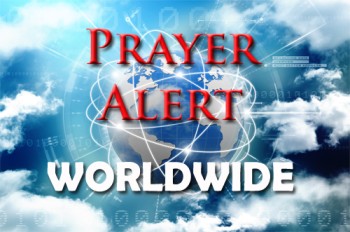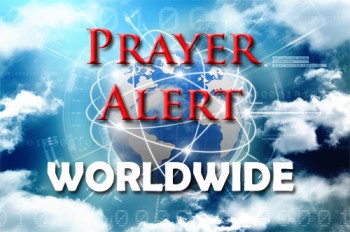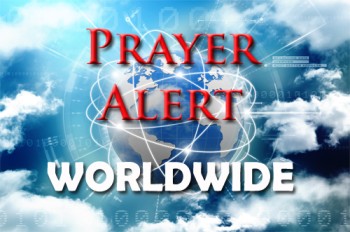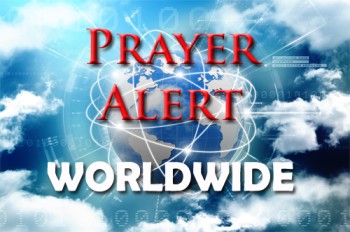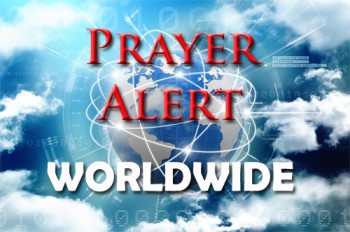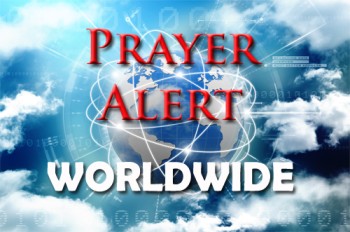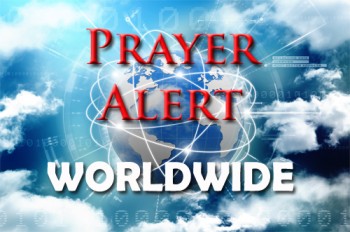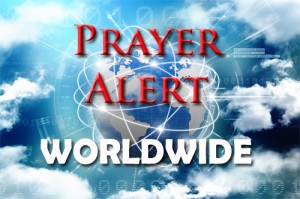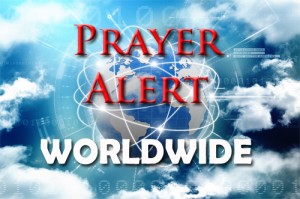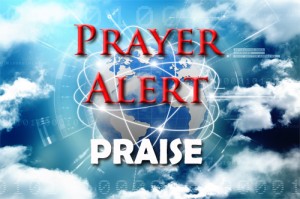Displaying items by tag: Cuba
Caribbean: hurricane causes huge devastation, many deaths
One of the strongest Atlantic hurricanes ever recorded, Hurricane Melissa has left a trail of devastation across Jamaica, Haiti, and Cuba, killing at least 33 and displacing hundreds of thousands. Striking Jamaica as a Category 5 storm with winds of up to 185 mph, it tore roofs from homes, flooded entire communities, and crippled power and communication lines across the region. In Haiti, where fragile infrastructure magnified the disaster, scores are dead or missing after floodwaters swallowed coastal towns. Cuba also faces collapsed buildings and blocked roads, with hundreds of thousands forced into shelters. In Jamaica, 77% of the island lost power: emergency services were inundated by floods and unable to conduct emergency operations. Two airports have reopened, with the UN and other agencies ready to deliver aid. Amid the chaos, local leaders and residents describe scenes of heartbreak and resilience - families salvaging what little remains, emergency workers battling through mud and wreckage, and governments scrambling to restore hope. Recovery will be long, painful, and costly.
Cuba: minister resigns after saying there are no beggars in the country
Labour and social security minister Marta Feito Cabrera has resigned following widespread backlash over her comments denying the existence of poverty and homelessness in Cuba. Speaking in the National Assembly, Feito claimed that those seen begging were merely ‘disguised’ and that street workers and recyclers lived ‘easy’ lives funded by untaxed income. Her remarks provoked outrage from citizens and leaders alike, including the president, who criticized the lack of empathy and said that the revolution should not leave anyone behind. Amid Cuba’s worsening economic crisis, due partly to the longstanding and widely criticised US sanctions (recently tightened by Donald Trump) but also to fuel shortages and inflation, many are struggling to access basic needs. Feito’s resignation was accepted after she ‘acknowledged her errors’. The incident has sparked renewed debate on the government's handling of poverty, inequality, and transparency.
Cuba: prisoners released despite Trump’s reversing Biden’s decision
Cuba has released 553 prisoners, according to an agreement made in January with Joe Biden’s administration. The deal, mediated by the Vatican, was in return for being removed from the US terrorism blacklist. However, Donald Trump has reversed the decision, reinstating sanctions and temporarily halting the process. The USA had asked for ‘political prisoners’ to be released, but Cuban authorities classified the individuals as having committed diverse crimes. Around 200 of those released had been detained because they took part in the huge anti-government protests in July 2021, though officials claim they were convicted for other reasons. The protests, the largest since the 1959 revolution, stemmed from economic struggles, food shortages, and dissatisfaction with government policies. The release follows pressure from the USA, EU, Catholic Church, and human rights groups to free those jailed.
Cuba: USA set to remove ‘terrorism’ designation
As Joe Biden nears the end of his term, he is set to remove Cuba’s designation as a ‘state sponsor of terrorism’. This decision comes after an assessment found no evidence supporting Cuba’s continued listing. However, with Donald Trump soon to take office, the move may be symbolic and subject to reversal. Cuban officials welcomed the ‘overdue’ action, pointing out the harm which the designation caused to their economy and population. The designation, originally made in 1982 under Ronald Reagan, has been rescinded and reinstated several times. While some Republicans plan to challenge the move, the change could allow US humanitarian organisations to provide aid to Cuba without facing sanctions. In response, Cuba announced the release of 553 prisoners, including some linked to the anti-government protests in 2021.
Cuba: president leads march to support Gaza
Cuba’s president, Miguel Diaz-Canel, has led thousands of protesters in Havana to show solidarity with Palestinians in Gaza. The march included around 250 Palestinian medical students and featured a large banner declaring, ‘Long live free Palestine’. The president and other leaders wore keffiyeh scarves as a symbol of solidarity. Participants expressed their support for Palestinian sovereignty and condemned Israel’s actions in Gaza. The march, originally scheduled for 7 October to mark the first anniversary of Israel's war on Gaza, was delayed due to Hurricane Milton. In June, Cuba joined a lawsuit filed by South Africa at the International Court of Justice against Israel's military actions in Gaza.
Cuba: communism’s atheistic ideology
Despite 2018’s change in leadership, Cuban churches face unrelenting pressure from a government that views churches as a threat to the revolution that began in the 1950s. Cubans are poor, and the government seeks to control every aspect of their lives. In April 2021, Miguel Diaz-Canel was announced as first secretary of the Communist Party, the first leader since the revolution who is not a Castro. Three months later Cubans protested over deteriorating living conditions and called for an end to dictatorship. Most Cubans are atheists and many engage in superstitious and spiritist practices, including Afro-Cuban Santeria. 11% are evangelical Christians. The government persecutes them and seizes churches. Believers meet in illegal house churches which are growing through active evangelism. Many Cubans have never owned a Bible. Many are closely watched and effectively under house arrest. Many are denied jobs. Pray for those distributing Bibles and supporting discipleship and evangelism.
Cuba: protests against government
Historic and spontaneous protests rocked Cuba on 11 July, taking the communist government and the international community by surprise by their intensity and numbers. Analysts say there will not be immediate changes to one-party communist rule, but it’s a watershed moment and they have put an enormous amount of pressure on the government to speed up reforms. Cubans experiencing food and medicine shortages, increasing Covid-19 cases, inflation, rising prices and long power cuts chanted ‘Freedom’ and ‘We want change’, while holding signs that read ‘Down with dictatorship’. Journalist Yoani Sánchez tweeted, ‘We were so hungry, we ate our fear.’ Dr. Teo Babun said dissent has been brewing in the church for months. Evangelicals and Catholics have been generating a tremendous amount of social media, demanding the government pay attention to the hurt taking place. Political changes depend on whether demonstrators continue the momentum that stunned so many on 11 July.
Three elections on 24 February 2019
On this day a national referendum to ratify Cuba's new constitution will take place; the government says that gay marriage protections will be removed from the draft, but this is still being argued by politicians. Moldova’s elections are under a new mixed electoral system which people do not trust. Pray for peaceful electioneering and outcomes in both these situations. Since the military coup in Thailand, a new political party, the youthful Future Forward Party, has emerged (see). Critics say the constitution dilutes the power of elected governments and embeds the role of the military role in politics and policy for the next twenty years. Activists have been calling on the government not to postpone the election again, amid fears that it might do so.
Cuba: same-sex marriage
Cuba’s national assembly is considering changes to the 1976 constitution. A draft new constitution recognises private property and opens the door to same-sex marriage. In July five evangelical churches in Cuba spoke out their opposition to same-sex marriage because the ideology of gender is totally foreign to Cuban culture or ‘the historic leaders of the Revolution.’ They explained their position in a statement posted on social networks. The five denominations do not belong to the government-approved Cuban Council of Churches. Evangelical churches in Cuba have experienced rapid growth since the government's religious opening up in the 1990s. They now have hundreds of ‘home temples’ spread around the island. See:
Churches in atheist Cuba see evangelical resurgence
Cuba was an atheist country during the Castro era. In 1960 Rev Naranjo spent two years in a labour camp for his evangelical preaching. Now, his church is full of life with 200 worshippers on Sundays, providing clinical care for disabled children and hosting a Bible study group. Across Cuba tens of thousands gather for evangelical worship every week even though the government still doesn't allow religious groups to construct their own houses of worship and have demolished church buildings. Presbyterian pastor Joel Ortega Dopica said, ‘There's a revival of churches of diverse denominations; all of them are growing, not just in the number of members, but in their capacity to lead and act in society'. Dopica is the president of the Council of Churches of Cuba, an official association of 32 Protestant denominations.
